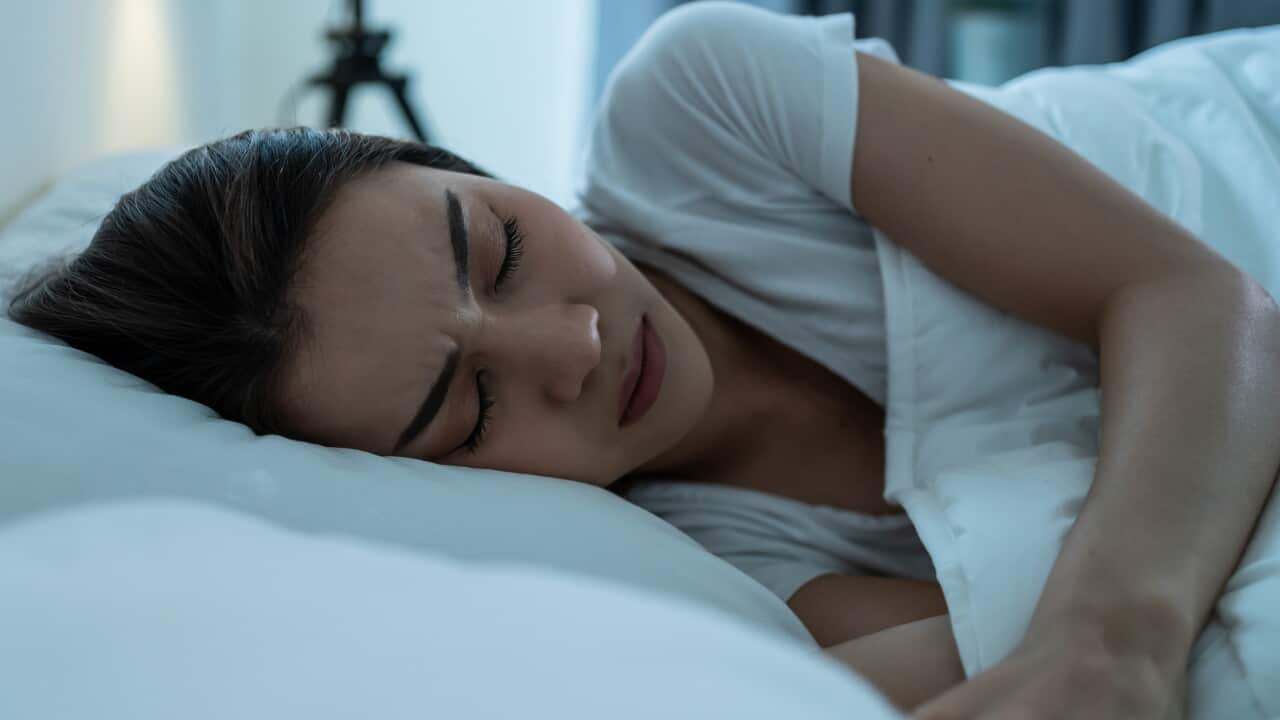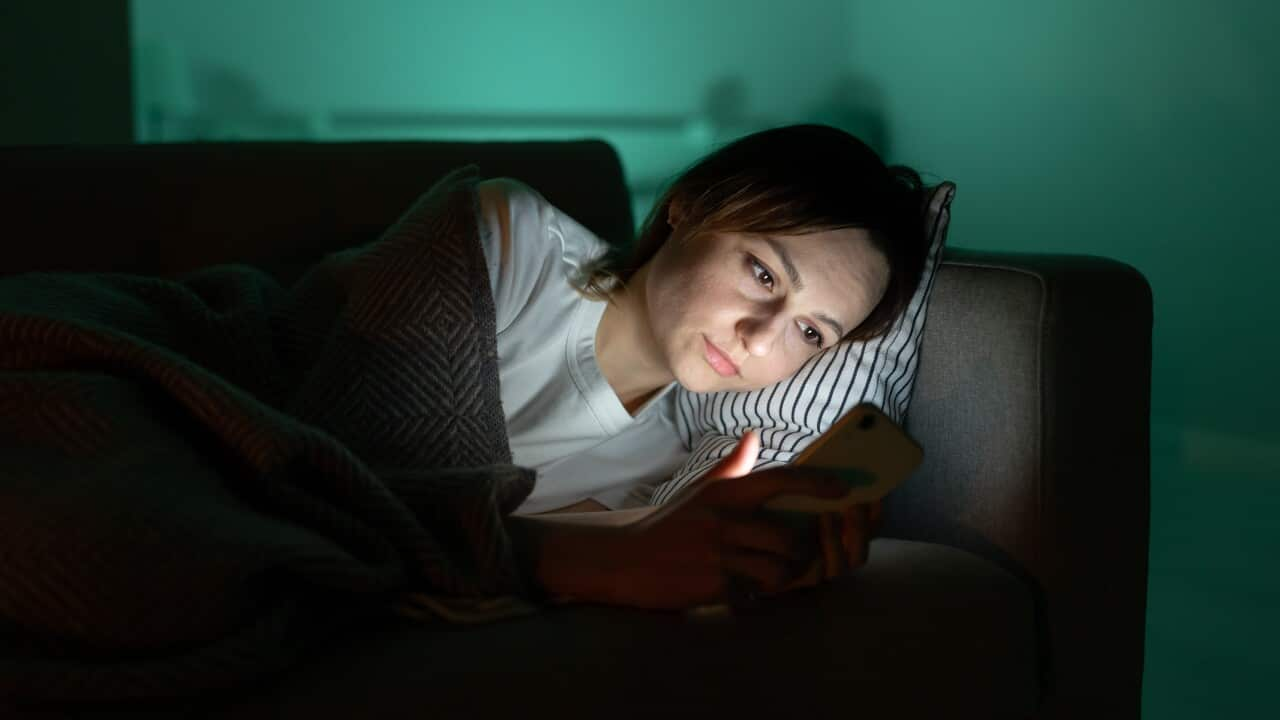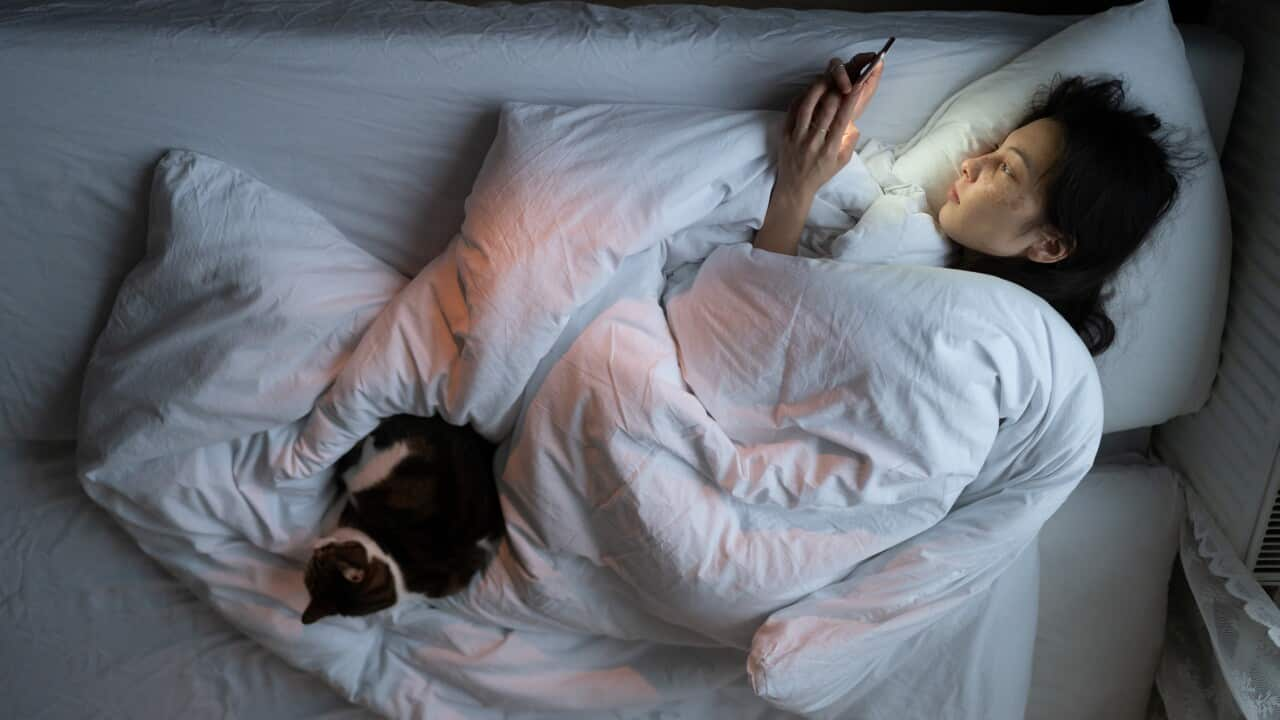Key Points
- YouTube's ad changes could disrupt sleep videos, sparking a petition led by a YouTube star Jason Stephenson.
- Videos aimed at helping sleep have surged in popularity.
- One in 10 Australian adults has chronic or long-term insomnia.
Dannie, a 52-year-old hospitality worker from Sydney, has been a restless sleeper for as long as she can remember.
Two years ago, after her husband died, the situation became "unbearable".
"I couldn't fall asleep for hours, and when I did, I would wake up every 30 minutes, often in tears," Dannie said.
"Now, I also wake up quite often, but only to start a new video on YouTube or if there's an ad that wakes me up.
"Those ads are annoying, but I doze off again. Sleep videos really changed my life."
Last month, ads started appearing at the end of sleep and relaxation videos on YouTube after the company said all videos on the platform, regardless of content, would have promotions at the end.
The move is said to have been made to improve revenue for video creators but it has prompted one such creator to launch a change.org petition to stop the ads.
'Our job is to get people to sleep'
Australian Jason Stephenson started the petition. Stephenson, whose sleep meditation YouTube channel has 3.21 million subscribers, said on the petition page, "while this change may seem benign for many channels, it has the potential to be disastrous for sleep-focused channels such as ours".
"Our work revolves around helping our subscribers relax and fall asleep peacefully. Placing an advertisement right at the end of a sleep journey can startle listeners and disrupt the entire experience we aim to provide," Stephenson said.
After more than 10,000 people signed the petition, Stephenson said he had met with the YouTube team and they had "assured us of their commitment to minimising interruptions during our videos".

Jason Stephenson has a sleep meditation music channel on YouTube. Credit: Supplied
"The ads have become so excessive on YouTube this past week it's not worth it for me anymore," a channel follower commented about two weeks ago.
"This makes no sense. We need rested people in this world, please don’t try and commodify everything by forcing people to pay for a subscription, just to access sleep support," another person wrote.
Stephenson said the changes were "a little disturbing" for his team.
"Our job is to get people to sleep," he said.
"But I'm grateful that YouTube has responded to our petition and although they can’t promise that there will be no ads placed at the end of each video initially, I’m asking our listeners to be patient as it can potentially take a month or two for the algorithms to recognise any ads placed at the end of our sleep meditation."
A YouTube spokesperson said: "Just because all ad formats are enabled on a video, it doesn't mean each ad format will necessarily be shown. We encourage creators to monitor this change with us and share their feedback on how it’s performing on their channels."

YouTube videos and different apps that promise to help people relax and fall asleep are becoming increasingly popular. Source: AAP / Moodboard
Do 'sleep videos' work?
YouTube videos and different apps that promise to help people relax and fall asleep are becoming increasingly popular and gaining a massive following.
Australian and New Zealand Journal of Public Health in July found as many as one in four young Australians
ASMR, white noise, sleep meditation music, sleep stories — there's no shortage of this type of content online.
According to web analytics company Similarweb, the most searched term on YouTube in 2023 was "ASMR" with 67.34 million searches.
What is ASMR?
ASMR stands for Autonomous Sensory Meridian Response and, according to one of the leading researchers on ASMR, Dr Giulia Poerio from the University of Sussex, the term "describes the experience of tingling sensations in the crown of the head, in response to a range of audio-visual triggers such as whispering, tapping, and hand movements".
The acts performed in ASMR videos can range anywhere from someone meticulously cutting a sponge cake with a sharp knife, creating a soothing rustling sound, to a man continuously tapping his palms for over an hour.
"ASMR 'tingles' is often accompanied by feelings of calm and relaxation," Poerio said in her research.
Poerio concludes that ASMR videos can contribute to emotional regulation and may offer therapeutic advantages for some people but she says more research is needed.
Before bedtime, not during sleep
If you type "sleep videos" into Google, you'll get around 2.76 billion results with all kinds of related content. However, there hasn't been a lot of research into their effectiveness for insomnia.
"It is not something we hear a lot about in the sleep research and medicine community, so I suspect there is not much research being done, but more research is needed," said Andrew Vakulin, Associate professor of the Adelaide Institute for Sleep Health.
Dr Christopher Gordon, associate professor in the Department of Health Sciences, Macquarie University, agrees.
"There's very little research on those sleep videos. And people certainly shouldn’t listen to them during sleep. There’s some evidence about using them well before sleep to help you to get relaxed but not to help fall asleep or stay asleep," he said.

Dr Alexander Sweetman is a Research Fellow at the Adelaide Institute for Sleep Health at Flinders University. Credit: Supplied
"In general, we recommend keeping your bedroom as quiet as possible, including avoiding listening to music in the middle or throughout the night," he said.
"[Sleep music] could help people to fall asleep initially but there's a risk that it will wake them up in the middle of the night and "restart that insomnia cycle."
The best treatment for insomnia
According to Sweetman, one in 10 Australian adults has chronic or long-term insomnia and there’s not enough public awareness about the seriousness of the problem and the available scientific-based treatment.
"Cognitive behavioural therapy for insomnia (CBTi) is recommended as the most effective treatment that we have for insomnia," he said.
"This is recommended by every sleep primary carer and medical association all over the world that looked into insomnia evidence. It targets all underlying causes of insomnia."











